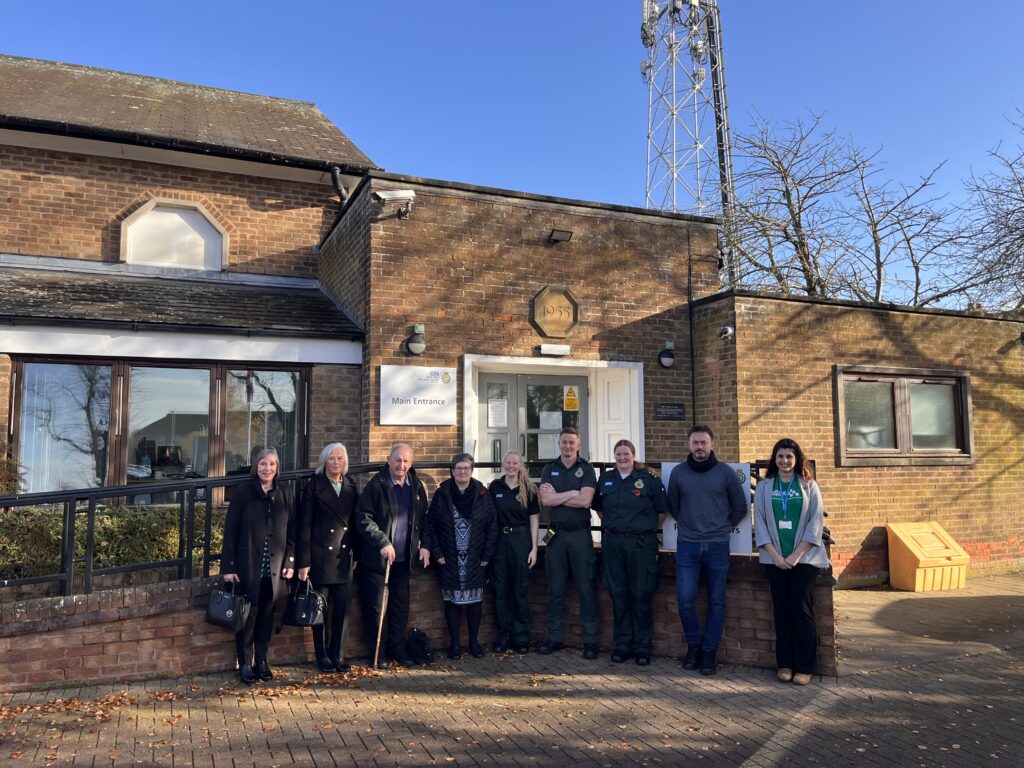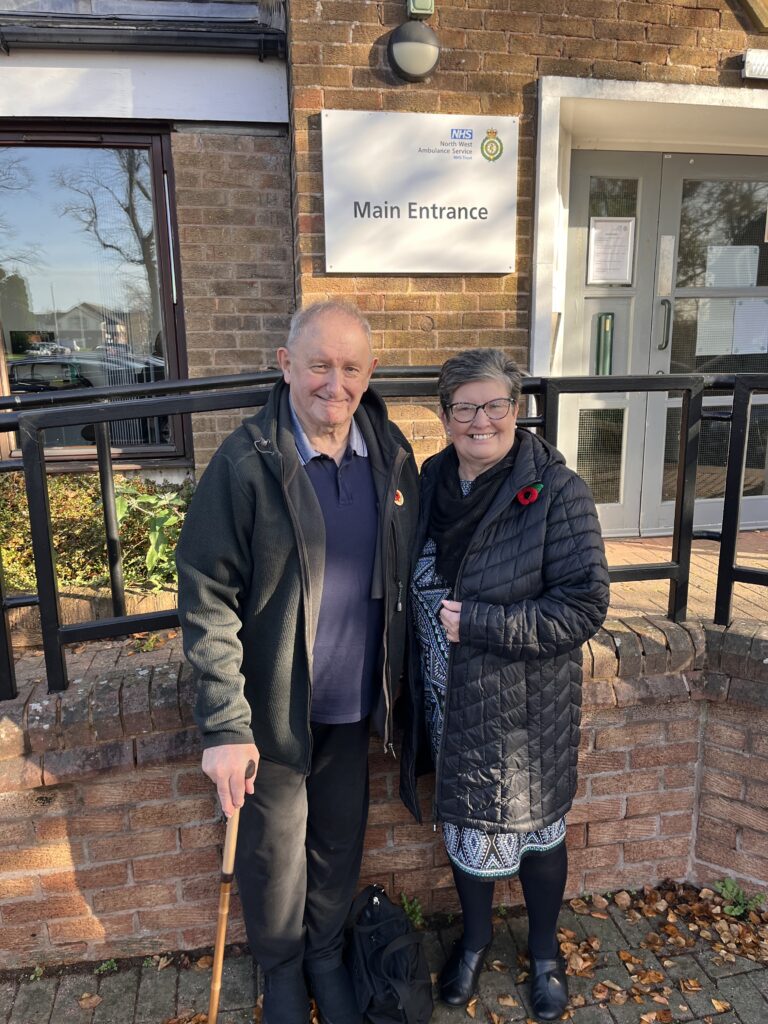
74-year-old Valerie West suffered a cardiac arrest in March this year while walking along Catherine Street in the town. She survived to tell the tale thanks to the swift intervention of some passers-by and emergency medics.
Valerie says, “I have no memory of what happened, but I know four people stopped and helped me: a retired nurse, her friend, a local artist and an off-duty paramedic. They started to give me CPR. Fortunately, the ambulance was also only a few minutes away.

“Without their fast action, I would not be here today. They all helped save my life, and I’ll be forever grateful”.
Valerie and her family were invited to North West Ambulance Service’s (NWAS) Cumbrian Office in Carlisle to meet paramedics Abi, Andrew and Claire. The retired nurse, Ann, her friend Glenda, and the off-duty paramedic, Bart, were also there to share the celebration.
Matt Cooper, NWAS Area Director for Cumbria and Lancashire, said, “It was such a pleasure to meet Valerie and her family. It is not often that staff can find out what happens to patients after we take them to the hospital, so for them to see her again in much more positive circumstances is a real joy.
“As this incident shows, the importance of learning CPR and basic life-saving skills is crucial. The speed at which the people walking past were able to recognise what had happened to Valerie and start chest compressions undoubtedly played a role in her survival, as did the expert work of the ambulance service and medics at the hospital.
“I want to highlight the important role those behind the scenes also play, including our call handlers, control room teams, and all our support services. They all help with the speed of our response and instruct those on the scene how to give CPR to the patient before help arrives.”
“I would encourage anyone to learn basic life-saving skills, as you never know if you might need to provide life-saving treatment to a family member, friend or even a stranger in an emergency”.
Cardiac arrest occurs when the heart suddenly stops beating, leading to a cessation of blood flow to vital organs, including the brain. Every minute without intervention significantly decreases the chances of survival. Immediate and proper response, such as CPR and the use of automated external defibrillators (AEDs), can make a crucial difference in the outcome.
In addition to passing on her heartfelt thanks, Valerie also made a donation to the North West Ambulance Charity.
The North West Ambulance Charity has funded one million pounds of charitable projects over the last two years. Over two-thirds of that has been spent on saving lives in the community by buying community-access defibrillators, keeping them running by buying replacement parts and funding equipment for volunteer community first responders.
Ian Savage, Head of North West Ambulance Charity, said: “We’re incredibly grateful to Valerie for the support she has shown to the charity, which will make a positive difference to patients and emergency services staff.
“As well as funding life-saving equipment for the local community, our charity supports ambulance service staff, allowing them to be at their best to help people in their time of need. Helping to create calm spaces to take a well-earned break or supporting initiatives to boost mental and physical health, it all makes a difference.”
More information is available at www.nwas.nhs.uk/get-involved/lifesaving-skills/learn-to-save-a-life/ .
For more information on the charity, visit www.nwas.nhs.uk/charity